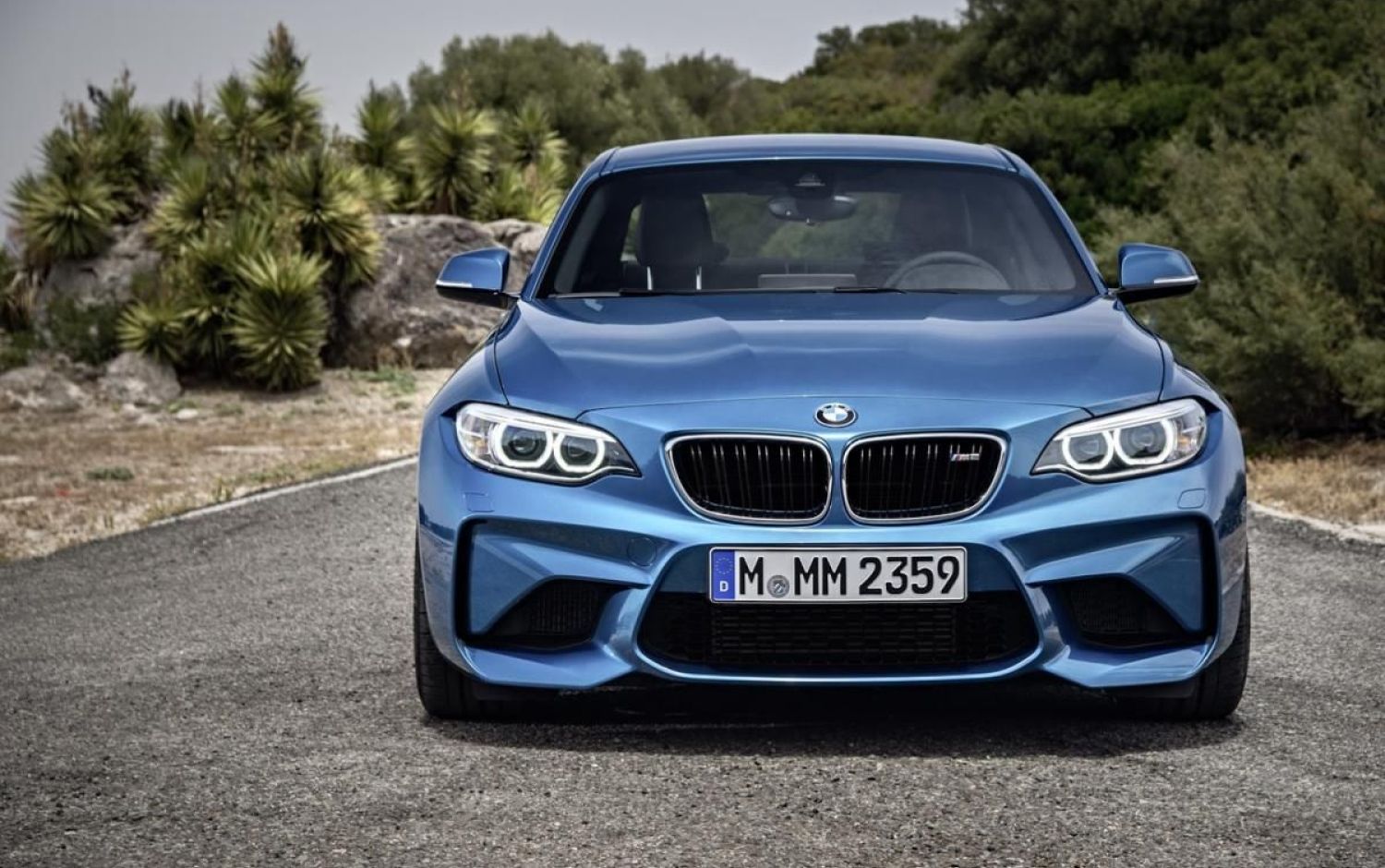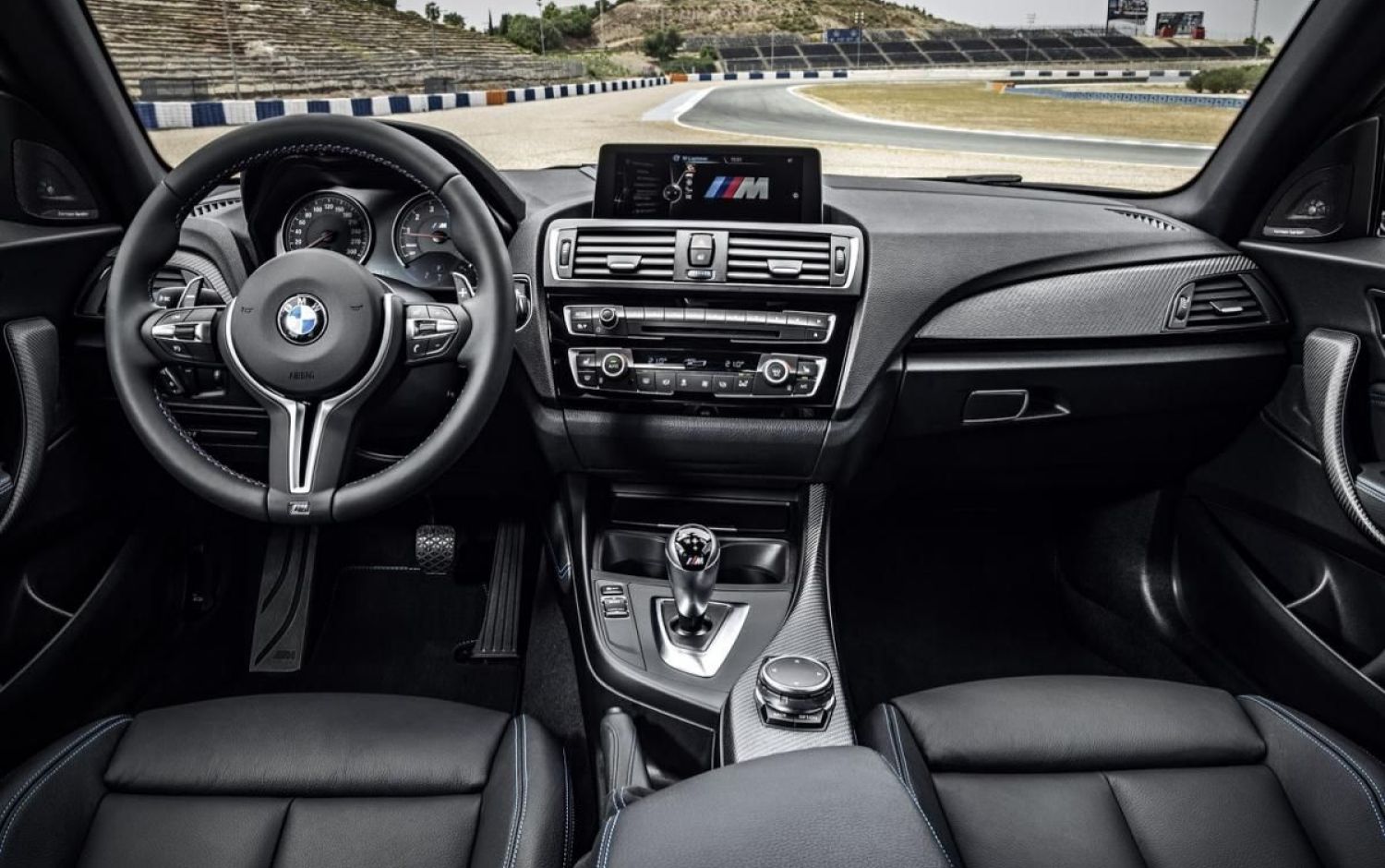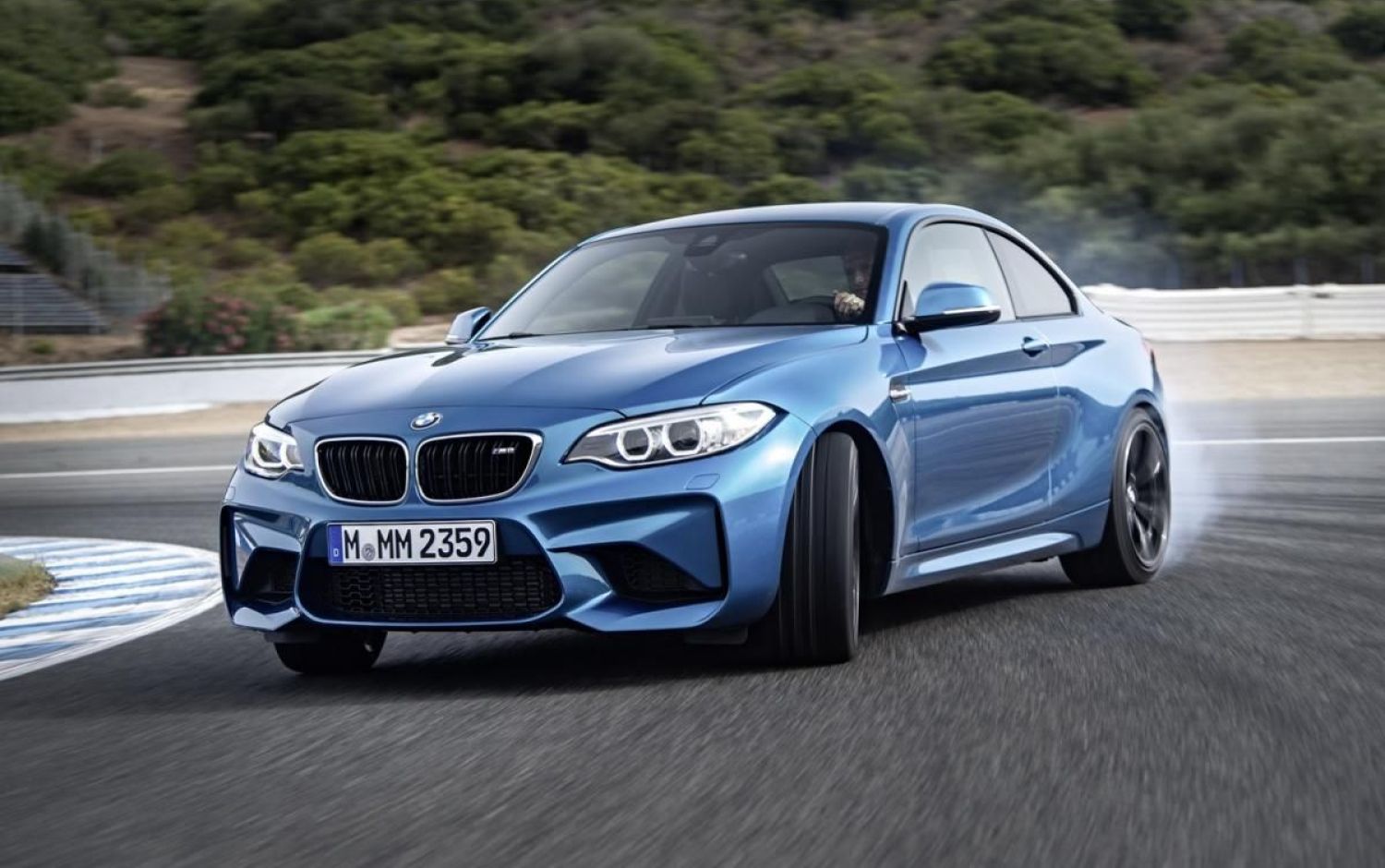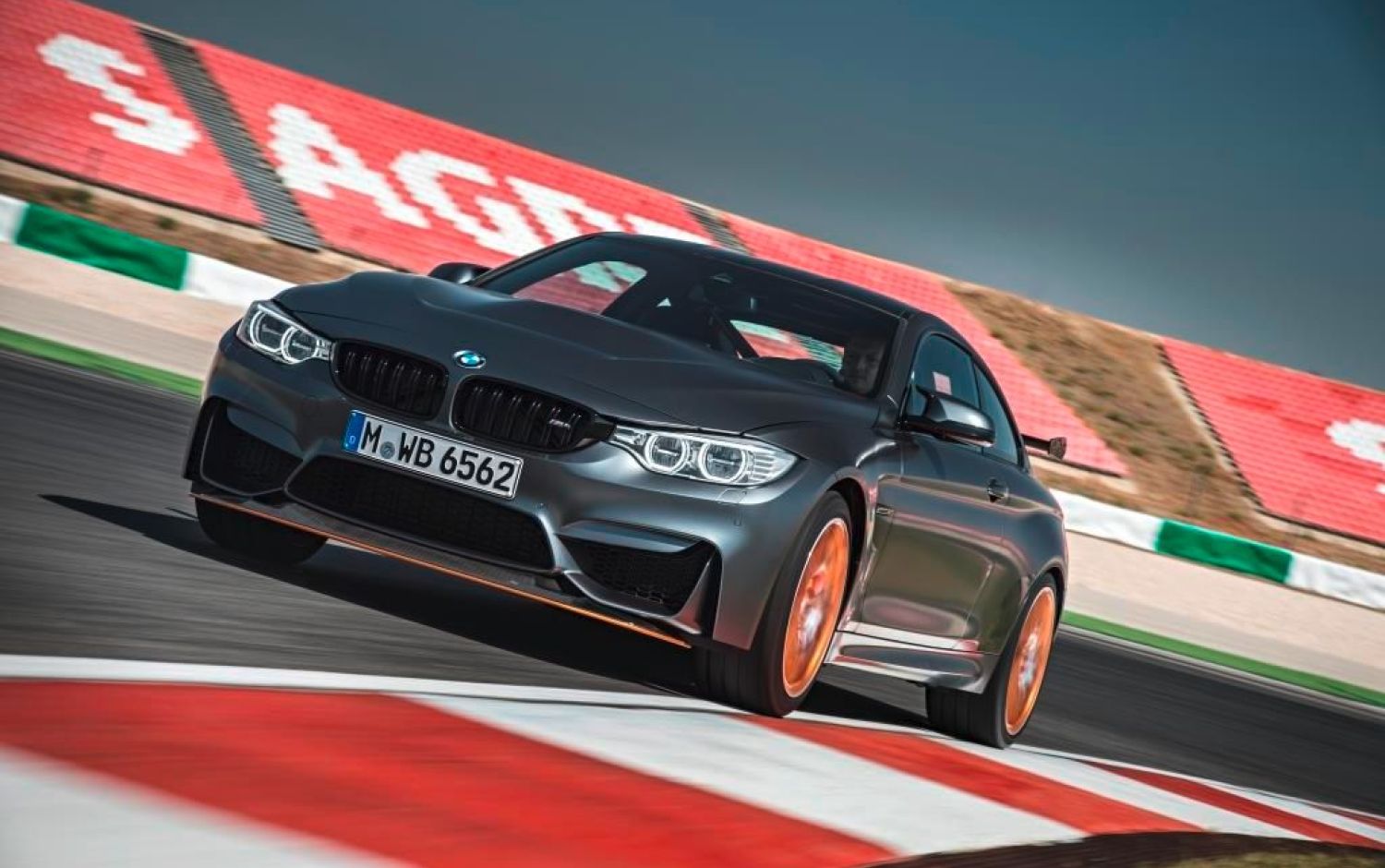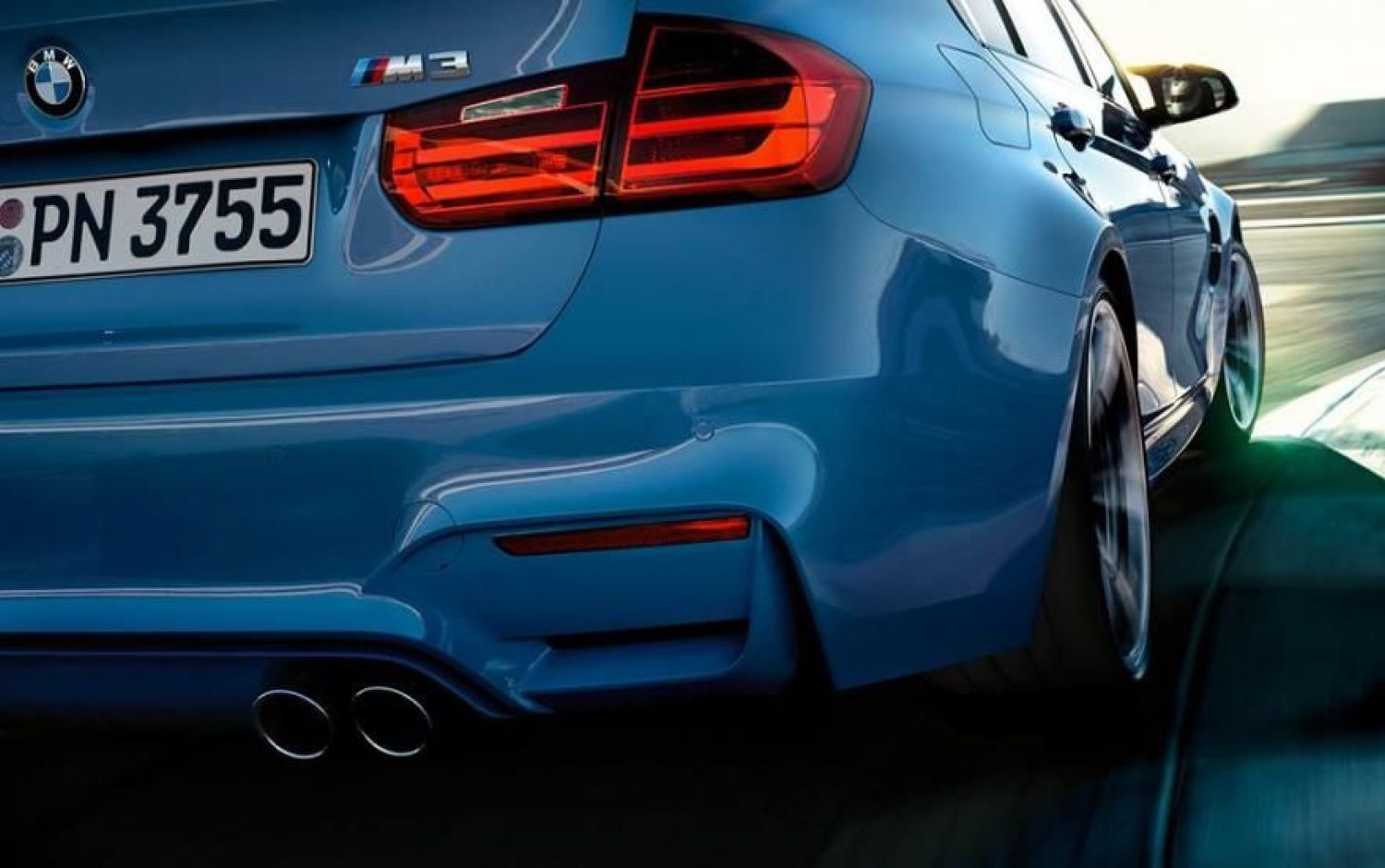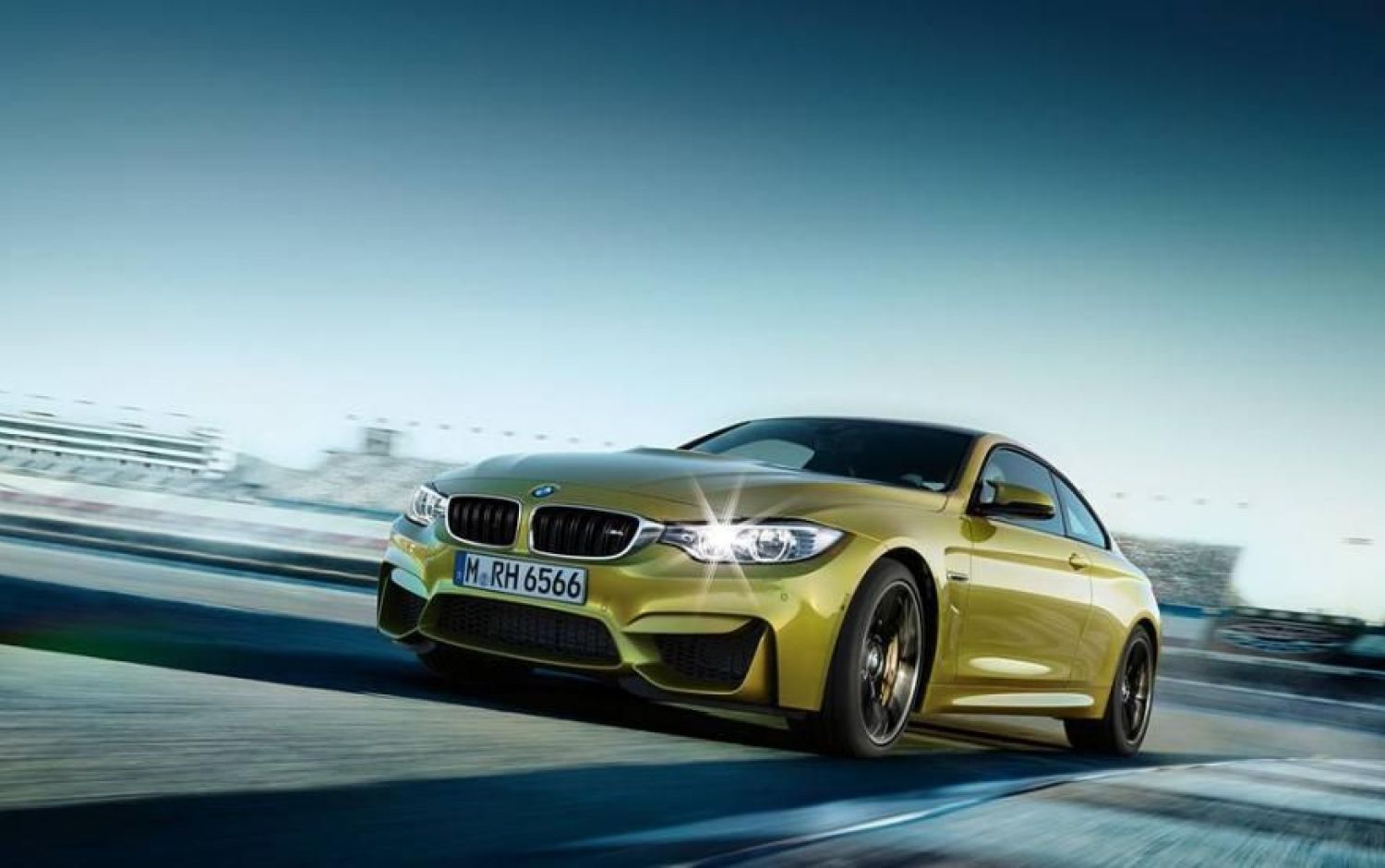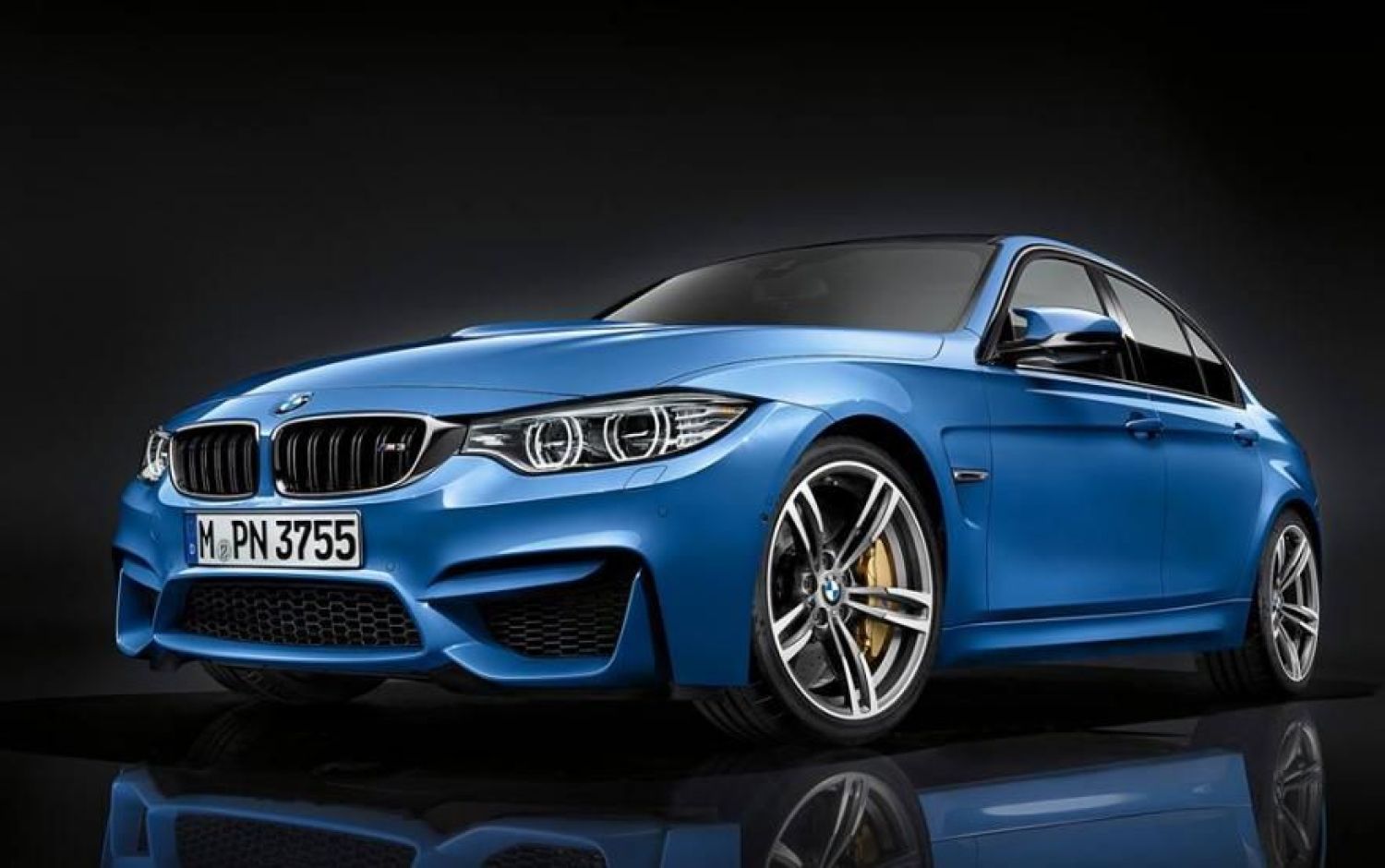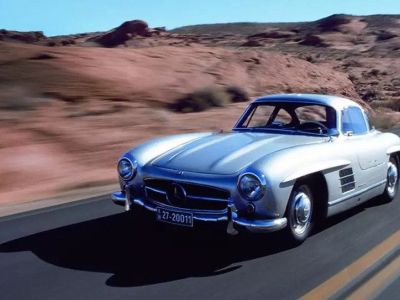
Three-litre six-cylinder in-line engine in the new BMW M2 deploys cutting-edge M TwinPower Turbo technology to develop 272 kW/370 hp at 6,500 rpm (fuel consumption combined: 8.5 l/100 km [33.2 mpg imp]; CO2 emissions combined: 199 g/km) and, in so doing, lays down a marker in the high-performance compact sports car segment.
The same applies to power delivery. Peak torque of 465 Nm (343 lb-ft) can be increased to as much as 500 Nm (369 lb-ft) in short bursts under overboost. All of this enables the new BMW M2 Coupe with optional seven-speed M Double Clutch Transmission (M DCT) and Launch Control to accelerate from 0 to 100 km/h (62 mph) in just 4.3 seconds. Top speed is electronically limited to 250 km/h (155 mph). Yet, with its M DCT transmission, a fuel consumption of just 7.9 liters per 100 km (35.8 mpg imp), and CO2 emissions of just 185 g/km, the car is also keen to emphasise its outstanding efficiency.

BMW M3 Sedan has a 3.0-liter V6 engine delivering 430 hp (406 lb/ft) and 550 Nm from 1850 rpm.
The car can sprint from zero to 100 km/h (62 mph) in 4.1 seconds with an automatic 7-speed DCT transmission, while with a 6-speed manual, it takes 0.2 seconds longer.
The top speed is limited to 250 km/h (155 mph), but with M Driver’s package, the car can reach 280 km/h (174 mph). Combine fuel consumption of 8.8 lt/100km while riding on manual transmission. The automatic one uses 0.5-liter less.
The car has a carbon roof and a Smokey Burnout function, making it smoke more when burning the rear wheels.

BMW M4 Coupe has a 3.0-liter V6 engine delivering 430 hp (406 lb/ft) and 550 Nm from 1850 rpm—the same as the BMW M3 F80.
The car can sprint from zero to 100 km/h (62 mph) in 4.1 seconds with an automatic 7-speed DCT transmission, while with a 6-speed manual, it takes 0.2 seconds longer.
The top speed is limited to 250 km/h (155 mph), but with M Driver’s package, the car can reach 280 km/h (174 mph). Combine fuel consumption of 8.8 lt/100km while riding on manual transmission. The automatic one uses 0.5-liter less.
The car has a carbon roof and a Smokey Burnout function, which lets to make more smoke when burning the rear wheels.

The BMW M4 GTS gives BMW M GmbH a new and exclusive technological showpiece, elevating the potential of the BMW M4 Coupe to another impressive new level. With its robust, motorsport-inspired looks and high-performance technology, the BMW M4 GTS has its sights set squarely on the race track.
A lap time of 7.28 minutes around the legendary Nürburgring-Nordschleife, the world’s most exacting race circuit, is a clear statement of this special-edition model’s exceptional abilities.
At the same time, the sharpest BMW M4 of all – like its BMW M stablemates – can also hold its own on public roads. BMW M GmbH is launching the BMW M4 GTS in a special edition limited to 700 units to celebrate the 30th anniversary of the BMW M3, which has been in production since 1986. It highlights the innovative flair of the BMW M engineers in developing trailblazing M technologies on the powertrain, chassis, and lightweight construction front.
At the heart of every BMW M model is its engine. The BMW M4 GTS uses the multi-award-winning six-cylinder in-line turbo engine from the BMW M3/M4. Still, it adds innovative water injection technology to boost the 3.0-litre unit substantially. The water injection system raises the engine’s output significantly – to 368 kW/500 hp – and increases torque to 600 Nm (442 lb-ft), yet still keeps fuel economy and CO2 emissions at the level of the BMW M4 Coupe (8.3 liters per 100 km [34 mpg imp], 194 g/km). This makes the BMW M4 GTS the most agile, radical, and dynamically potent model in the range. It races from a standstill to 100 km/h (62 mph) in a mere 3.8 seconds and hits a limited top speed of 305 km/h (189.5 mph).

BMW M5 F90 has a 4.4-litre V8 bi-turbo engine with M TwinPower Turbo technology.
The M engineers have significantly revised the outgoing model’s power unit. For example, newly developed turbochargers, ultra-efficient indirect charge air cooling, and increased fuel injection pressure help to raise output and torque.
The engine develops 441 kW/600 hp at 5,600 – 6,700 rpm, while a monumental 750 Nm (553 lb-ft) of torque is placed at the driver’s disposal from as low down as 1,800 rpm and remains there until 5,600 rpm.
A map-controlled, fully variable oil pump ensures oil is supplied as and when the new BMW M5 needs it, even on the track.
The car’s impressive performance figures speak for themselves: 0 to 100 km/h (62 mph) in just 3.4 seconds, 0 to 200 km/h in 11.1 seconds (124 mph). Top speed, meanwhile, is an electronically limited 250 km/h (155 mph), but the optional M Driver’s Package can keep the fun coming to 305 km/h (189 mph).






